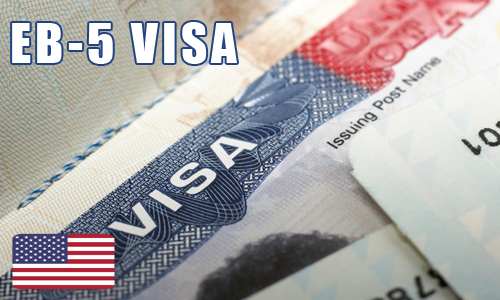How to Eliminate Subpart F Foreign Base Company Service Income
In this article I’ll explain how to eliminate Subpart F Foreign Base Company Service Income issues in an offshore corporation. Subpart F issues are the most common tax planning hurdles to overcome when you have a division of a US company operating abroad. Subpart F applies to income of a Controlled Foreign Corporation (CFC).
This article is focused on service income of a foreign division. Service income is earnings and profits generated by work done in a foreign country or a US territory. Service income is not profits from the sale of a physical good into the United States market.
This analysis applies to a business setup in a low tax country, such as Panama, or in the US territory of Puerto Rico under Act 20. For a basic summary of offshore and Puerto Rico, see: Panama vs. Puerto Rico, which is right for your business?
Sub F foreign base company service income is defined under Section 954(e) of the Internal Revenue Code as income derived in connection with the performance of technical, managerial, engineering, architectural, scientific, skilled, industrial, commercial, or like services that are performed for, or on behalf of, a related person, and are performed outside the country under the laws of which the CFC is incorporated. Under this definition, income earned by a CFC will constitute foreign base company services income only if it satisfies all three of the following tests:
- The income is derived in connection with the performance by the CFC of certain specified services;
- The services are performed by the CFC for, or on behalf of, a related person or company; and
- The services are performed outside of the country in which the CFC is organized (IRC Section 954(e)(1) and Treasury Reg 1954-4(a)).
Thus, where a CFC performs services for a related party through a branch established outside of its country of incorporation, it may incur “foreign base company services income.”
Income that is deemed to be foreign base company services income is not eligible to be retained offshore tax deferred and not eligible to be tax free in Puerto Rico under Act 20. That is to say, Subpart F income must be included in the parent company’s US tax return and is taxable in the United States as earned.
EDITORS NOTE: On July 11, 2017, the government of Puerto Rico did away with the requirement to hire 5 employees to qualify for Act 20. You can now set up an Act 20 company with only 1 employee (you, the business owner). For more information, see: Puerto Rico Eliminates 5 Employee Requirement
There is no US tax benefit when Sub F income, including foreign base company services income, is generated in an offshore or Puerto Rican corporation. Thus, all service businesses must strive to eliminate Sub F income and must be prepared to deal with the issue in an audit.
The easiest way to avoid Sub F base company service income issues is to ensure that the services are performed where your offshore business is incorporated. This means that your business should be operated from a low cost and zero tax jurisdiction such as Panama or Puerto Rico.
Where US businesses often run into problems is in setting up a Cayman Islands corporation (in a high cost offshore jurisdiction where they won’t have any employees) and then hiring independent contractors in Latin America and India. You should be hiring employees and building a real division offshore… not just using a shell company to manage independent contractors.
I see the same issue when US companies set up divisions in low cost but high tax countries like Mexico. The Mexican corporate tax rate is 28.5% compared to the US rate of 35%, so not much savings there. Also, Mexico taxes the worldwide income of its corporations.
So, companies incorporate in Panama (which taxes local sourced income but not foreign sourced profits) and put the employees in Mexico, hoping to get the best of both worlds.
If your employees are providing a service from Mexico, and the business operates through a Panama corporation, you’re opening yourself up to Sup F foreign base company service income issues.
The other way to avoid Sub F foreign base company service income issues is for the offshore corporation to contract directly with the customer. The foreign company should contract with the customer and the customer should be paying the foreign company, not the US parent.
Basically, if the US parent is obligated to perform the services which are performed by the CFC, the income earned is attributable to the US company. This can be avoided by having the customer contract directly with the client such that the parent is not responsible for the service.
Also, the “related party” rules can apply if the foreign division receives “substantial assistance” from the US parent. To avoid this part of the test, the foreign division should be operating independently such that the work, as well as the mind and management of the business, is performed in the offshore jurisdiction (the country of incorporation). IRC Section 954(e)(1) and Treasury Reg 1.954-4(a). See also IRC Notice 2007-13.
When it comes to avoiding Subpart F of the US tax code, the US territory of Puerto Rico can provide significantly more cover to a CFC than any offshore jurisdiction. A corporation in Puerto Rico is a US entity for contract purposes and can open a bank account anywhere in the United States.
That is to say, a corporation from Puerto Rico can open a bank account at Wells Fargo in California, Bank of America in New York, or wherever it’s owners have a relationship. While an offshore company can only bank outside of the United States, a Puerto Rican company can bank where it likes.
These facts make doing business through a Puerto Rican company much easier than a foreign entity. This is especially true in high volume low dollar transactions. No one is going to send an international wire for a $200 product.
I hope you’ve found this article on how to eliminate Subpart F Foreign Base Company Service Income issues in an offshore corporation helpful. For more information, or for assistance in planning or forming a division in Puerto Rico or offshore, please contact me at info@premieroffshore.com.











Leave a Reply
Want to join the discussion?Feel free to contribute!